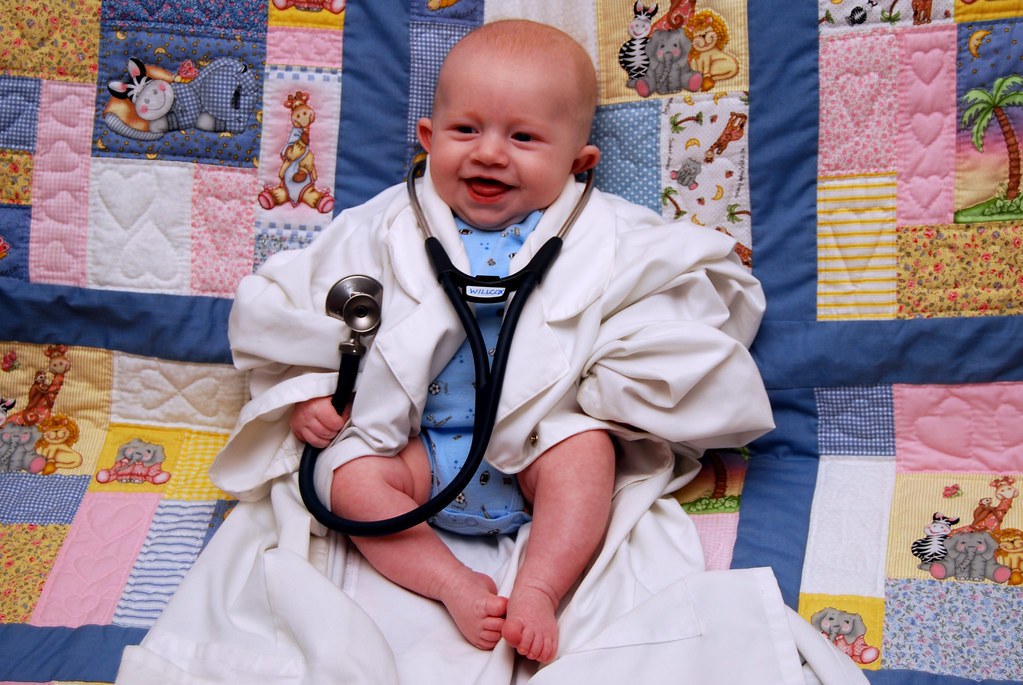Who Knew? 21st-Century Medical Risks That Were Unheard of When We Were Babies
Medical breakthroughs have changed the face of medicine from what it was a century or even a decade ago. Some, like robotic surgery and laser cavity detection, are the stuff of science fiction. Others, such as recognizing the link between obesity and heart disease or diabetes, result from a greater awareness that lifestyle can affect an individual’s health. With all these discoveries, Brian from www.superohealth.com says, “People may understandably believe that the incidence of serious diseases will dramatically decline in the decades ahead.”
However, such thinking is akin to putting our heads in the sand. Even as illnesses such as cholera have largely been eradicated, and malignant tumors can be zapped with amazing precision, there are risks on the horizon that were not a concern when today’s adults were infants.
Jane Byrne at FirstCare Dublin points out that there are many types of dementia, each with their own causes and symptoms. “However, there are similarities across the board, which we need to combat. Dementia is so widespread nowadays that all healthcare professionals really have to stand up and take notice
Technology: a Mixed Blessing
High-tech advances are making our lives easier. With the press of a button, it is possible to book airline tickets, prepare a perfect salad, watch a historic sporting event, or have a telephone conversation while riding a bus—with someone halfway around the world. However, there is a downside, one that will increase as we move further into the 21st century. As the Internet and cell phone use become more accessible in more locations, the health risks are liable to grow. Radiation from computers, cell phone towers, and the devices themselves will only increase. 
In addition, as mechanical devices allow people to do more with less effort, greater inactivity will bring its own host of problems. Lack of physical activity as machines do more work comes with a whole set of health issues: reduced cognitive abilities and worsening brain health; type 2 diabetes; heart disease; a decline in cardiac and respiratory vigor; an increase in the overweight and obese population; and cancer.
The Aging of the World
It has been predicted that the elderly population in the United States will increase twofold by this century’s midpoint. This translates into a disproportionate number of people over 65, a whopping 20% of all residents. Even as the health of senior citizens continues to improve, so will their medical needs grow. A century ago, many disorders—dementia, worn joints, and others—were rare or nonexistent. The reason is simple; individuals often lived only until what we now think of as middle age. With the graying of world population, medicine will have to address issues that are not even known to us today.
The Rising Tide of Health Care Costs
Even as medical care improves at a remarkable rate, the price tag of health services will mushroom. Supero Healthcare Solutions, a provider credentialing company, told us, “antibiotics, vaccines, and new technologies will make individuals and insurers dig deeper into their pockets.” A related concern is the temptation to make costly equipment and products pay for themselves by prescribing their use when it is unnecessary. A physician or hospital can charge more for an MRI than for an X-ray, and often the less expensive diagnostic tool is as effective in pinpointing the injury or condition.
Societal Changes
As life becomes more complex, emotional problems also increase. Humans are social animals. The isolation resulting from computer games, Internet research, and e-readers has the potential for more incidences of depression and other mental illnesses. Ethnic diversity comes with its own health implications, including a potential rise in the frequency of genetic disorders. In addition, the concern has been expressed that the gap between wealthy and poor will widen, and that there will be a dearth of resources.
In Conclusion
Even as we celebrate the incredible advances in medicine over the millennia, it behooves us to look to the future with an eye to meeting its health care implications. Researchers and practitioners alike must plan and implement a system that will meet 21st century needs.
Supero Healthcare Solutions is a physician credentialing firm serving physicians and dentists across the United States. Keep up with them at their Twitter page!




